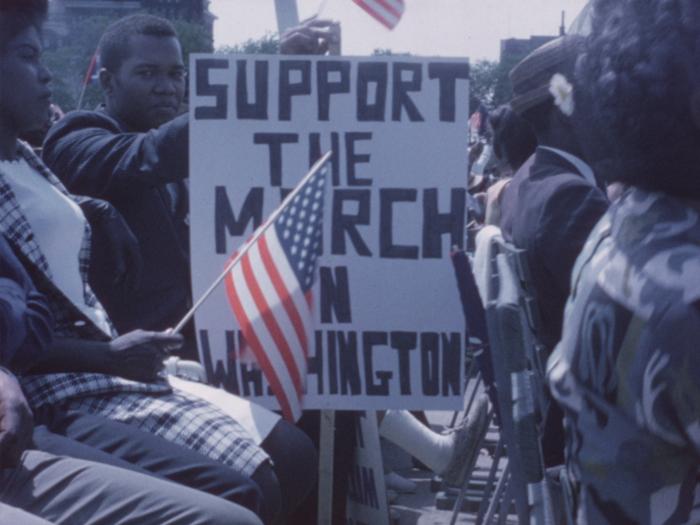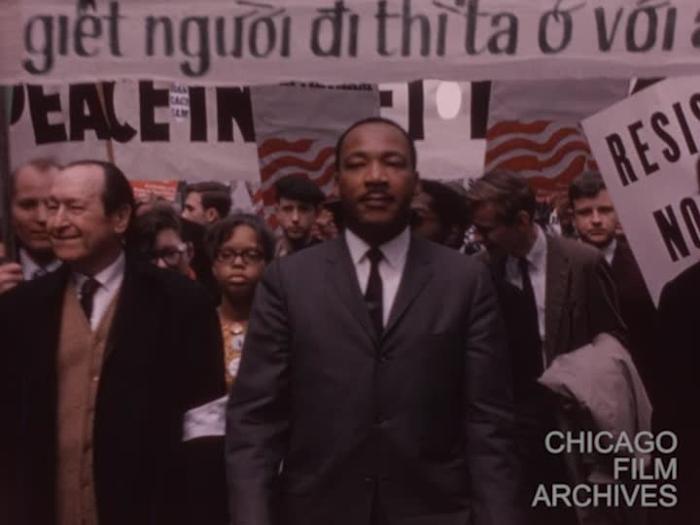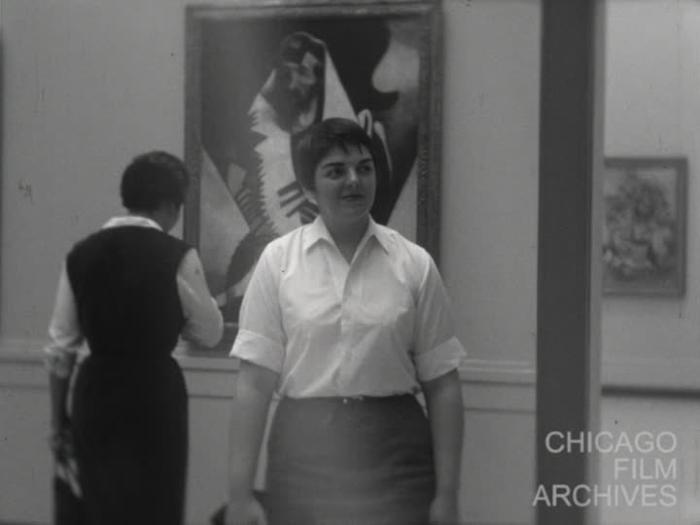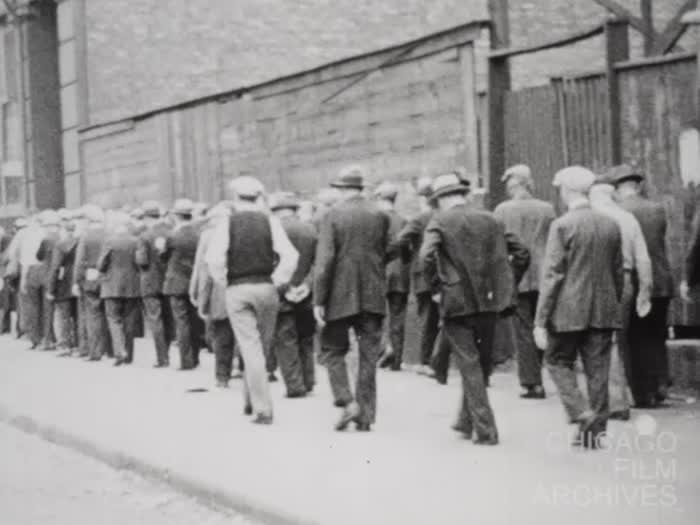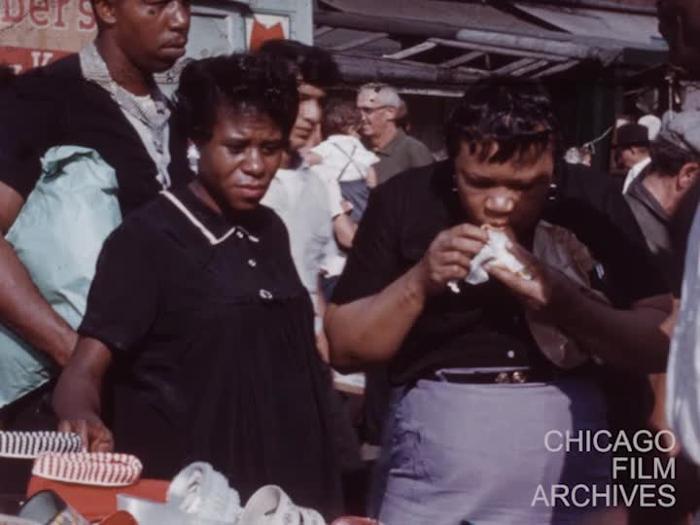Maurice Bailen Collection
Inclusive Dates
1933 – 1979
Abstract
A collection of 4 16mm films documenting the history of social movements from the Great Depression onwards, while also providing a vivid glimpse of life in Chicago during the 1930s through the late 1970s.
Description
Maurice Bailen (1905-1980) was a Chicago-based filmmaker and typographer whose films were devoted to capturing social movements during pivotal moments in American history. Beginning with the important film, The Great Depression, which features rare footage of Chicago during that turbulent era, followed by Confrontation, a work exploring the country's racial and class divisions during the 1960s and 70s, Bailen utilized the cinematic medium to express political ideas in a uniquely humanistic way.
Bailen was also a member of the Chicago chapter of the Workers Film and Photo League, which was an organization of filmmakers, photographers, writers, and projectionists that operated during the 1930s. They were committed to the use of film and photography to advocate for social change, and The Great Depression was produced under that group's auspices. It is widely believed to be one of the few films produced by the Workers Film and Photo League to have survived.
Bailen was also a member of the Chicago chapter of the Workers Film and Photo League, which was an organization of filmmakers, photographers, writers, and projectionists that operated during the 1930s. They were committed to the use of film and photography to advocate for social change, and The Great Depression was produced under that group's auspices. It is widely believed to be one of the few films produced by the Workers Film and Photo League to have survived.
Collection Items
Film
Confrontation
circa 1968
Film
Art Institute Class Film
circa 1958
Film
The Great Depression
1934
Film
The City
circa 1961
To request more information about the items in this collection, please contact the archive at
info@chicagofilmarchives.org.
Items with Viewable Media
Collection Identifier
C.2019-08
Extent of Collection
4 reels of 16mm film totaling approximately 1600 feet
Language Of Materials
English
Subject
Custodial History
The films were stored by Maurice's nephew, John Bailen, before being brought to the Chicago History Museum in August 2017. The museum subsequently referred the films to CFA in March 2019.
Access Restrictions
Appointments must be made with Chicago Film Archives for on-site access. Due to the fragile nature of the films, and the fact that they are rare, original work prints, only video copies will be provided for on-site viewing.
Use Restrictions
Chicago Film Archives holds the copyright for the films in this collection.
Creators
Bailen, Maurice
(was created by)
Maurice Bailen (1905-1980) was a filmmaker who lived in Chicago most of his life. His earliest training was in commercial art by working in art studios and taking courses at the School of the Art Institute of Chicago. He worked mostly as a photo engraver, but scenes of the bitter 1930s in Chicago became a natural background for his first film, The Great Depression (1934), a neo-realistic film presentation of those years.
His films were largely concerned with presenting social and political movements at turbulent times in American history, while also vividly capturing the people of Chicago. He was especially inspired by the films of Charlie Chaplin, John Huston, John Ford, Sergei Eisenstein, and G.W. Pabst. While in Paris in 1939, he had the privilege of observing Pabst direct the film The Liberation of Indochina at the Pathe Film Studio, which left a great impression.
According to an article written by Rick Bollinger and published by the Chicago Tribune on April 27, 1975, Bailen was often referred to as the “godfather of Underground Film in Chicago,” and many experimental filmmakers looked to him for guidance and inspiration. During the 1960s and 1970s, screenings of his films in various independent venues and cine-clubs throughout the city were often publicized as key destinations for local cinephiles to congregate and have an open discourse on film, art, and politics.
His films were largely concerned with presenting social and political movements at turbulent times in American history, while also vividly capturing the people of Chicago. He was especially inspired by the films of Charlie Chaplin, John Huston, John Ford, Sergei Eisenstein, and G.W. Pabst. While in Paris in 1939, he had the privilege of observing Pabst direct the film The Liberation of Indochina at the Pathe Film Studio, which left a great impression.
According to an article written by Rick Bollinger and published by the Chicago Tribune on April 27, 1975, Bailen was often referred to as the “godfather of Underground Film in Chicago,” and many experimental filmmakers looked to him for guidance and inspiration. During the 1960s and 1970s, screenings of his films in various independent venues and cine-clubs throughout the city were often publicized as key destinations for local cinephiles to congregate and have an open discourse on film, art, and politics.



